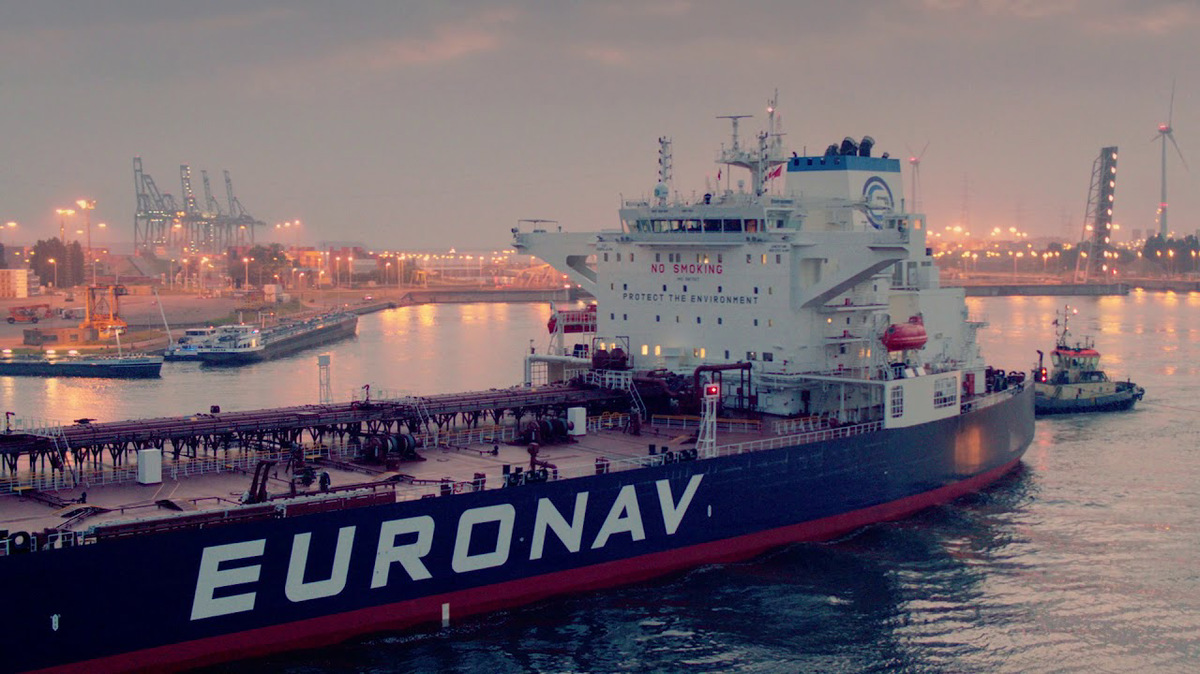Euronav not ready to pick an alternative fuel yet
Euronav will hold off deciding on an alternative fuel to go with until it is ready for use on larger vessels.

PHOTO: Euronav Cap Quebec entering the Port of Antwerp. Euronav
Some shipping companies are embracing greener marine fuels in a quest to reduce their carbon footprints. Fuel choices include ammonia, methanol, biofuels and LNG. These are seen as existing or future alternatives to conventional oil-based marine fuels, and present varying potential for carbon emissions reductions as shipowners gear up for upcoming global and regional environmental regulations.
Euronav's chief executive Hugo De Stoop said that the company would not be betting on a "specific" alternative fuel for at least the next 2-3 years since technologies for using alternative fuels will be available closer to 2030 for larger vessels.
“But putting all your eggs in the same basket is not very prudent. And that's exactly what we're not doing at Euronav,” De Stoop said at the company’s analyst conference call about its fourth quarter 2022 results.
The Belgian tanker firm owns a fleet of 64 Suezmax and very large crude carrier (VLCC) tankers vessels, and has another eight tanker newbuilds scheduled for delivery this year and next year.
While a decision to invest in alternatively fuelled vessels seem some way off, Euronav has said it does plan to operate vessels capable of running on zero-emission fuels by 2030.
“Some people believe that LNG is already better and will be transforming to a green fuel when it can be produced synthetically. Some people believe that methanol is a very good fuel as long as you can obviously produce the hydrogen in a green way and capture the CO2. And then some people believe that ammonia will be better because there is no CO2 emission, but this technology does not exist today,” De Stoop said.
 PHOTO: MAN Energy Solutions estimates that 30% of its dual-fuel engine orders will be for methanol and 30% for ammonia by 2030. MAN Energy Solutions
PHOTO: MAN Energy Solutions estimates that 30% of its dual-fuel engine orders will be for methanol and 30% for ammonia by 2030. MAN Energy Solutions
Ships need to have purpose-built engines to run on most alternative fuel types, which is why engine makers like Wartsila, MAN Energy Solutions (MAN ES), and Rolls Royce are developing dual-fuel and alternative-fuel-specific internal combustion engines (ICEs).
Several companies including Blue World Technologies, TECO 2030 and Alma Clean Power, are developing alternative-fuel-based fuel cells for marine applications as an alternative to ICEs. The majority of these technologies will be operational within five years.
According to De Stoop, Euronav's large tankers will also have to be fitted with some of the largest engines, which he said will be developed by engine manufacturers later than smaller engines. Shipyards and engine manufacturers have only committed to developing engine technology for larger vessels within 10 years, he said. He also added that the company is also interested in developments around ammonia infrastructure.
Euronav ordered methanol/ammonia-ready Suezmax tankers last year and is working with Hyundai Samho Heavy Industries to develop these capabilities on the ships. Although they are not "completely dual-fuel ready," De Stoop said they will likely be converted to run on either of the fuels in the future.
Some major shipping companies already have methanol- and ammonia-fuelled tankers in the works. AET, a Singapore-based tanker company owned by Malaysian shipping major MISC, has ordered dual-fuel ammonia Aframax tankers scheduled for delivery in late 2025 and early 2026.
COSCO Shipping has developed a methanol-powered VLCC concept design with Dalian Shipbuilding. COSCO has also ordered 12 container ships with 24,000 TEU capacity that will be fitted with dual-fuel methanol engines from Dalian Shipbuilding.
A.P. Møller – Mærsk has ordered dual-fuel methanol engines from MAN ES that will be fitted on six 17,000-TEU container ships. Mærsk has a total of 19 vessels on order with dual-fuel engines able to operate on green methanol.
Danish wind energy company Ørsted is tapping into e-methanol’s potential as a bunker fuel for the shipping sector and has confirmed to ENGINE that it has observed demand signals from several new shipbuilding orders for container vessels that will run on methanol.
De Stoop says that "part of the industry, the gas carrier, the container guys, even some dry bulkers and some tankers have met already on some technologies and those technologies will exist. The only problem is to produce the green fuels. So, I'm not sure there's going to be a huge rush at some point."
By Konica Bhatt
Please get in touch with comments or additional info to news@engine.online






